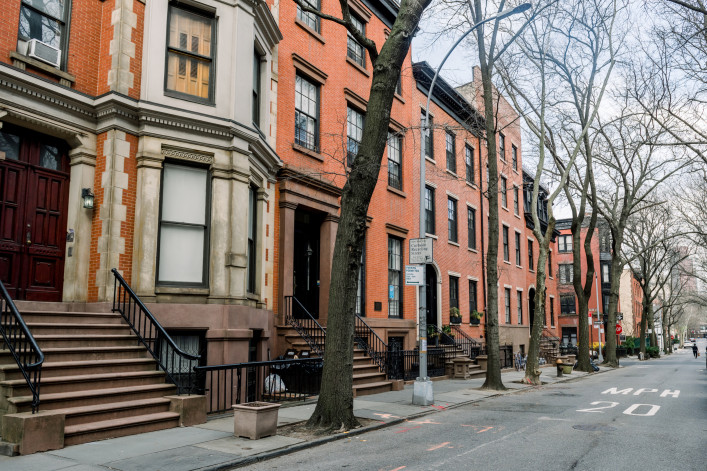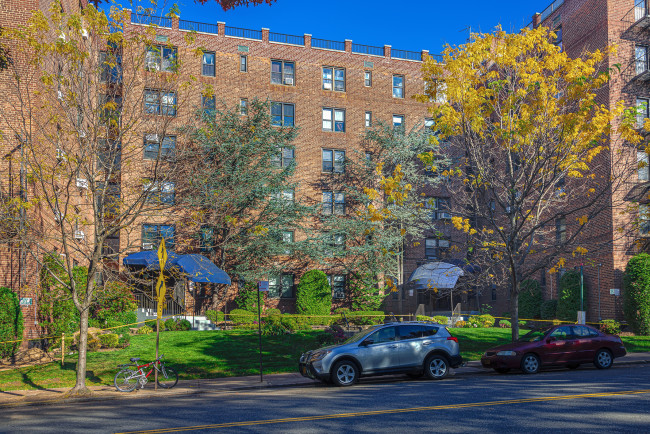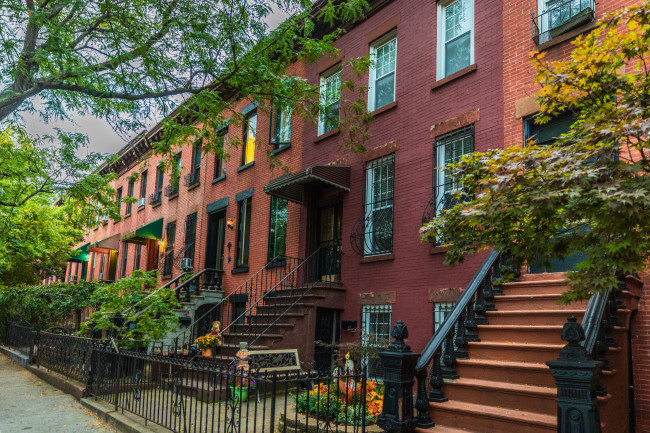3 ways to beat all-cash buyers (without beating their price)
- If possible, work with an attorney who has already negotiated sales in the building where you’re making an offer
- Have your tax returns and financial statement ready for the board application process to show you’re committed

Sellers want a committed buyer, not just one with a ton of cash.
iStock
I'm looking to buy an apartment with 20% down and finance the rest with a mortgage. How do I compete with an all-cash buyer without increasing my offer?
It’s no secret that New York City apartment buyers are flush with cash. But if you need financing to buy a home, it can be difficult to compete with a large crop of all-cash buyers, according to our experts.
All-cash deals made up roughly 68 percent of Manhattan apartment sales in the fourth quarter of 2023 in a record-high for the borough, according to the most recent market report from Douglas Elliman.
“The percentage of cash deals in Manhattan has risen dramatically over the last year and a half,” Noah Rosenblatt, CEO and co-founder of real estate data analytics company UrbanDigs.
That increase in all-cash deals is mainly due to higher interest rates, which has pushed out would-be buyers relying on financing and encouraged more cash deals. Mortgage-based sales fell 32.5 percent year-over-year in the fourth quarter, while all-cash sales surged 17.6 percent, according to the report.
If you’re still among the New Yorkers looking to buy an apartment with financing, you may be finding it tough to measure up to those who don’t need a mortgage. And if you’re cash strapped, you may be unwilling to offer a seller more money or increase the amount of cash in your offer.
Luckily, there are a few ways you can compete with an all-cash buyer without increasing your bid on an apartment.
Have all your documents prepared for the board
Sellers don’t just want a high bidder. They want to find someone who is committed to the sale to ensure the deal closes quickly, says Deanna Kory, an associate real estate broker with The Corcoran Group.
That’s why it's important to make sure all your financial documents—your tax returns, financial statement, and more—are prepared for your condo or co-op board application. You should ensure that your financial statement is up to date, particularly if you’re looking to buy a co-op, where the application process can be more intense, Kory says.
“When I'm representing a seller, I want to see if the buyer and their broker has everything set,” Kory says. “A strong financial statement is going to be necessary so they know that you will pass the board.”
Work with an experienced attorney and lender
Another way to ensure that the deal will move quickly is to select an attorney who can jump on the deal as soon as your offer is accepted, Kory says.
“When I'm representing a seller, I want to see if the buyer and their broker has everything set,” Kory says. “Do they have an attorney at the ready, and are they ready to jump on doing the due diligence right away to get into contract?”
Ideally, you should select an attorney who has already sold units in the building. Their experience and existing relationship with building management can indicate to the seller that you’re able to move quickly, says Sharon Yehoshua Darouvar, a real estate transaction attorney with Konner Gershburg Melnick Darouvar.
“There's always some risk between an accepted offer and a signed contract, especially in a shaky market,” Darouvar says. “Knowing that the buyer is fully committed, that the attorney has already done deals with the building and has successfully had buyers signing the contract … is definitely enticing for a seller who wants to deal with a closed ASAP.”
It’s also helpful to get preapproval for a mortgage from a lender who’s already financed units in the building, ideally within the last six months, Darouvar says. Banks that have recently provided loans on the property have already approved it for financing, meaning they are less likely to reject your loan based on problems with the building itself, Darouvar added.
Consider waiving the mortgage contingency, but know the risks
You can also offer to waive the mortgage contingency clause, a condition that allows you to cancel the purchase and get your deposit back if you’re unable to secure financing.
On paper, waiving the contingency makes you look similar to an all-cash buyer who doesn’t need to wait for financing from a bank to close on a deal. But the move is fairly risky, Darouvar says.
You should try to secure a preapproval letter for a mortgage to limit your risk if you do decide to drop the contingency clause, Darouvar says. It’s best to consult with your attorney before offering to drop the contingency, who may not be comfortable with the move, Kory says.
“It boils down to how badly you want the apartment and how much of a risk you’re prepared to take,” Kory says. “The risk is if you drop the mortgage contingency and you do not get a mortgage for whatever reason, that means you’re basically forfeiting your 10 percent deposit, or you need to find another mortgage, or you need to pay all cash. Most people who are getting a mortgage don’t have the cash.”
Trouble at home? Get your NYC apartment-dweller questions answered by an expert. Send your questions to [email protected].



























